Welcome to our guide on modifying advertising agreements! Whether you're fine-tuning the details of an existing contract or looking to add new elements, understanding the nuances of these agreements is essential for both parties involved. In this article, we'll break down what you need to consider, from clarifying terms to adjusting compensation structures, ensuring that everyone is on the same page. So, let's dive in and explore how to navigate these modifications effectively!

Parties Involved
The advertising agreement modifications involve two key entities: the Client, a brand seeking to promote its products or services, and the Advertising Agency, a creative firm responsible for developing and executing marketing strategies. The Client may be a well-known retail chain like Target or a local business, while the Advertising Agency could be a prominent firm such as Ogilvy or a niche player in the digital marketing space. The modifications typically address changes in advertising budget allocations, campaign timelines, or specific deliverables, ensuring both parties have clear expectations. Additionally, the agreement should stipulate the governing law based on the jurisdiction where the parties operate, typically a state like California or New York, and outline the procedures for dispute resolution to maintain a constructive working relationship.
Scope of Modifications
The advertising agreement modifications encompass a comprehensive approach to enhancing promotional activities across various channels. Adjustments include the expansion of the defined advertisement scope, introducing digital formats such as social media campaigns and email marketing strategies. Specific modifications address the duration of the campaign, now extending from the original three-month period to a six-month timeline to optimize audience reach and engagement. Additional financial commitments are articulated, reflecting a revised budget allocation of $50,000 aimed at targeting key demographics identified through market research. Furthermore, the inclusion of performance metrics will facilitate ongoing analysis and assessment of campaign effectiveness, ensuring alignment with overarching business objectives. The parties involved, identified as XYZ Marketing and ABC Corporation, will engage in quarterly reviews to refine strategy, maximizing the return on investment within the revised framework.
Terms and Conditions
Modifying advertising agreements requires careful consideration of various terms and conditions that govern the partnership between businesses. Essential components include the duration of the advertising campaign, which typically spans a period of one to six months, outlining clear start and end dates. Payment terms must be specified, detailing amounts, frequency, and acceptable payment methods, such as wire transfer or credit card, to ensure timely transactions. Additionally, clarification on content ownership rights is critical, distinguishing between proprietary content created by either party. The geographic scope of the advertising reach, whether local, national, or international, should also be identified to avoid disputes. Furthermore, termination clauses must be stated to allow either party to exit the agreement under specified conditions without facing penalties, enhancing flexibility in the partnership.
Effective Date
An advertising agreement modification can include changes that affect the project timeline, budget, or specific terms of deliverables. Notably, the effective date is critical as it marks when alterations take effect. For instance, if an advertising campaign originally scheduled to launch on January 1st requires adjustments due to unforeseen delays, a new effective date of February 1st would be established. This date clarifies the transition period during which both parties (advertiser and agency) accept the modified terms. Reevaluating the agreement ensures compliance with advertising regulations such as the Federal Trade Commission (FTC) guidelines. Regular updates protect brand interests and ensure clear communication of expectations.
Signature and Endorsement
An advertising agreement modification involves important aspects such as clarity, legality, and mutual understanding between parties. Key details include the specific changes being proposed, documented in a clear and concise manner to avoid misunderstandings. The modification should reference the original agreement (such as the date of the original contract and parties involved), outline any revised terms (such as payment structures, timelines, or responsibilities), and ensure that all parties' names and contact information are accurate. Additionally, it is crucial to include spaces for signatures from authorized representatives of both entities, confirming endorsement of the modifications. A date line should also be provided for each signature to indicate when the agreement was accepted. Each party should retain a copy of the amended agreement for record-keeping purposes.

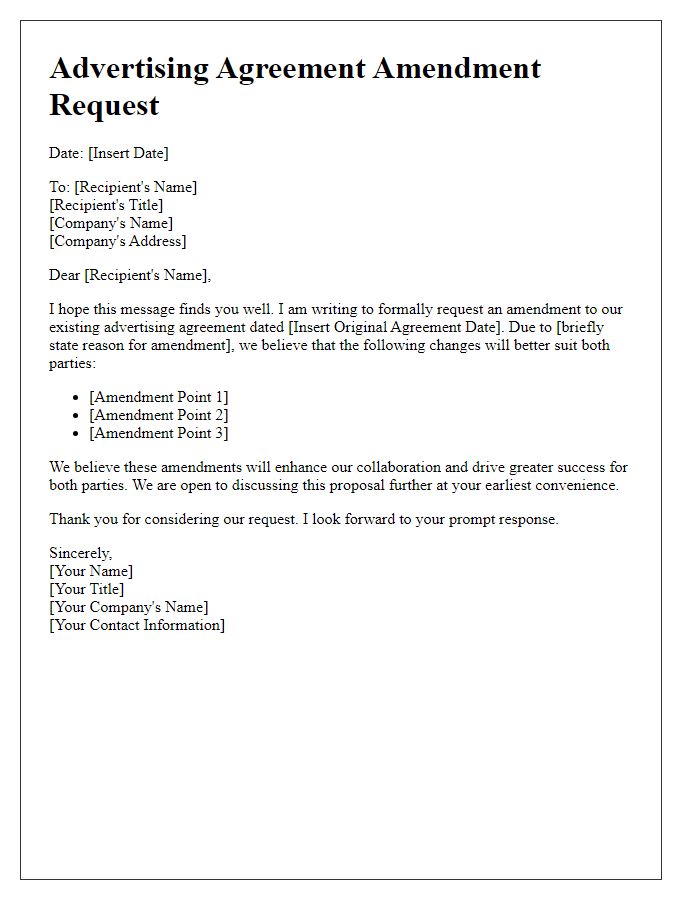
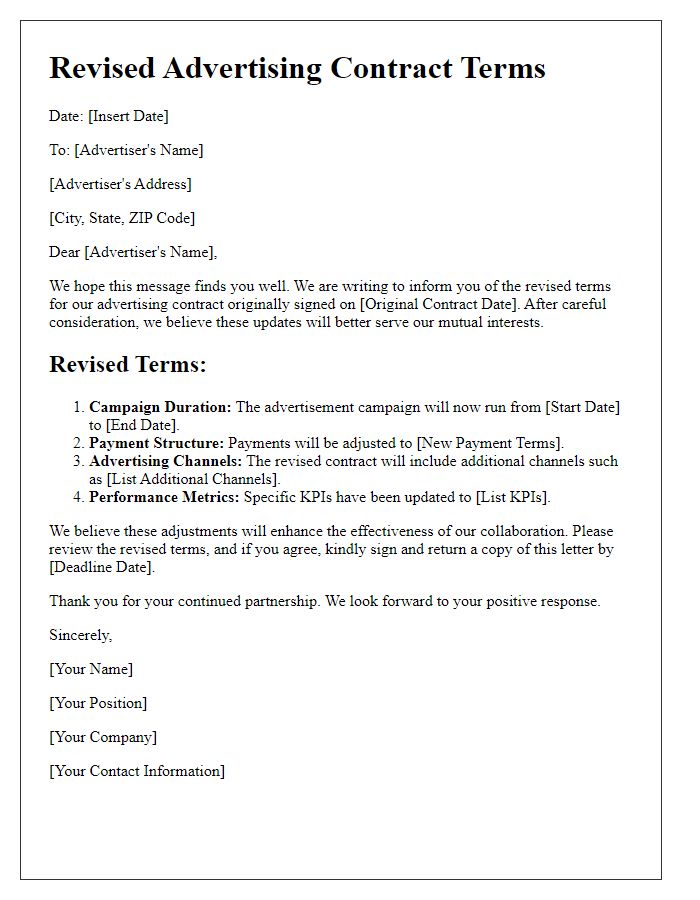
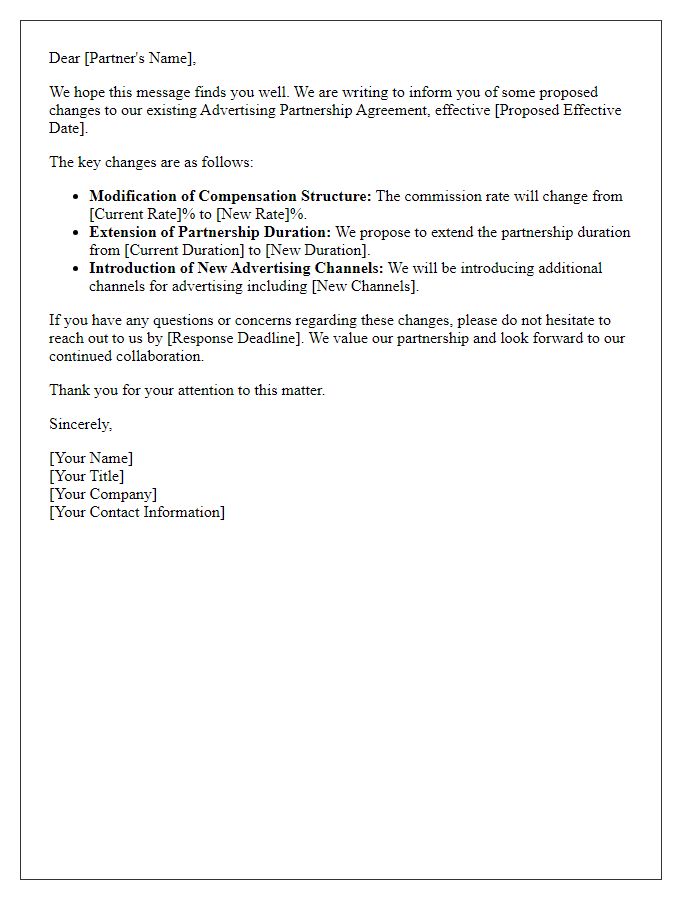
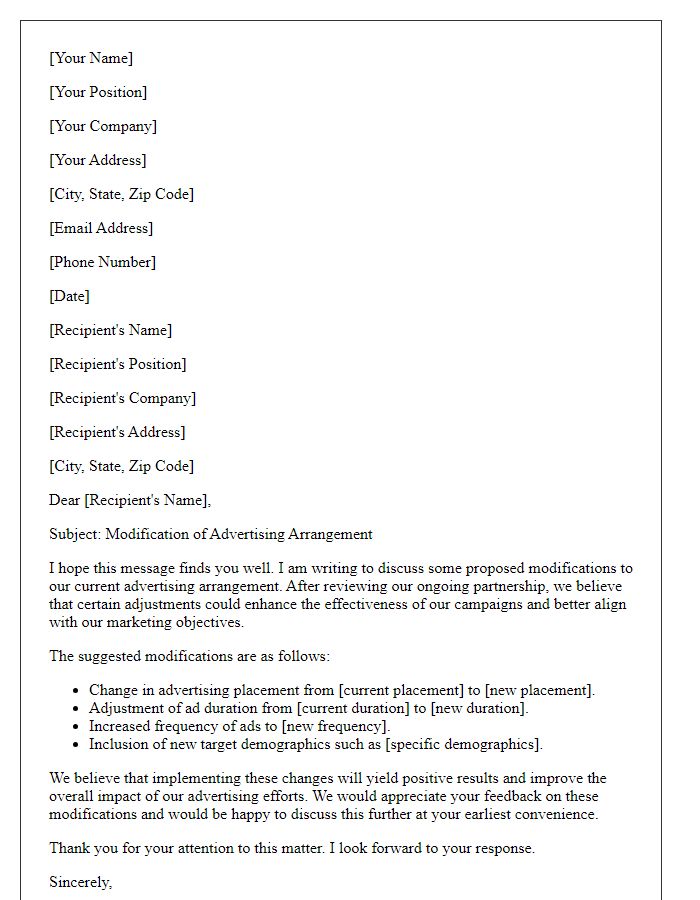
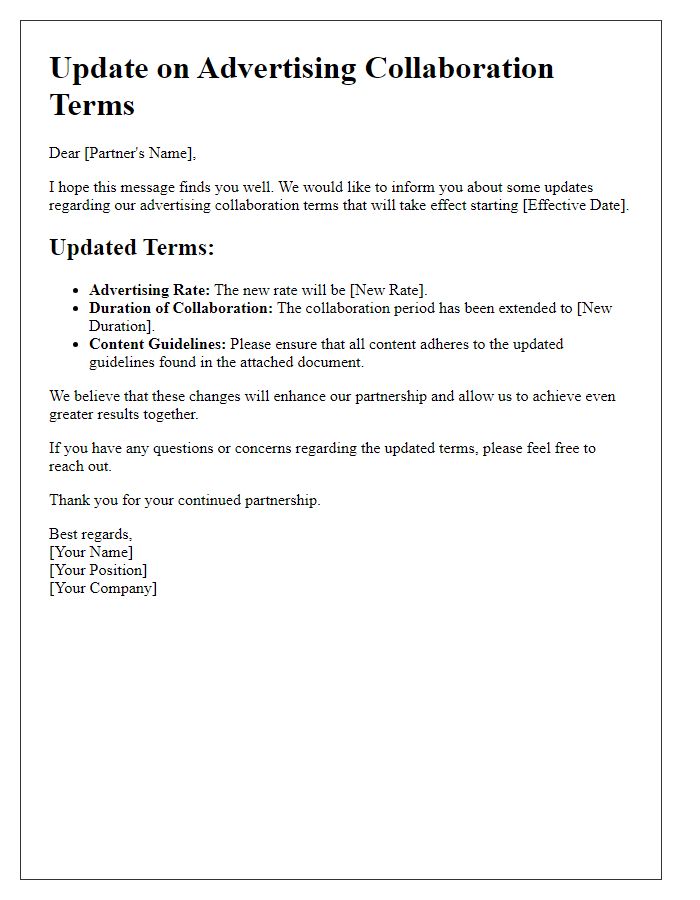
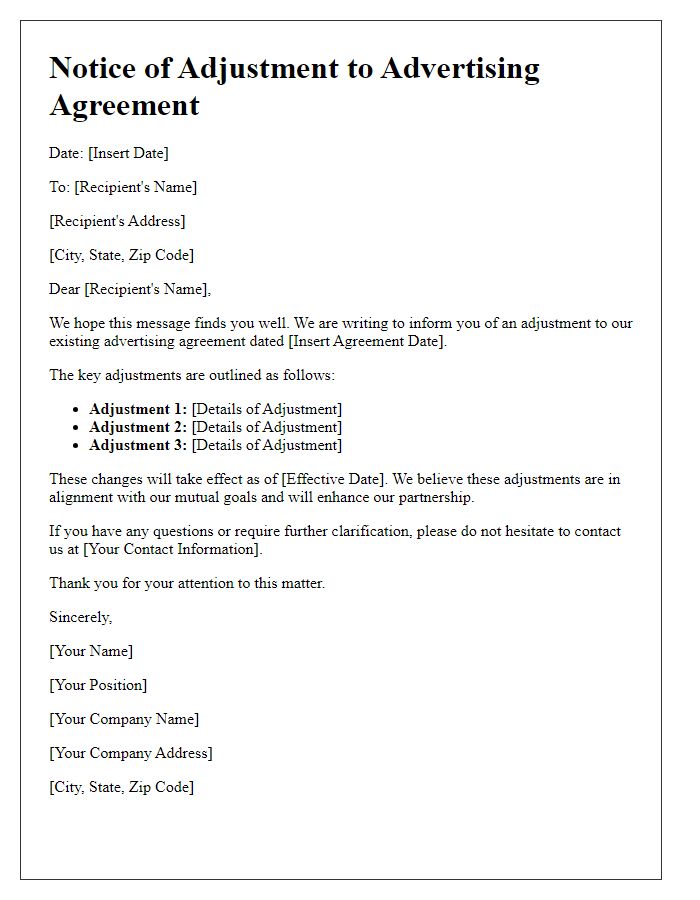
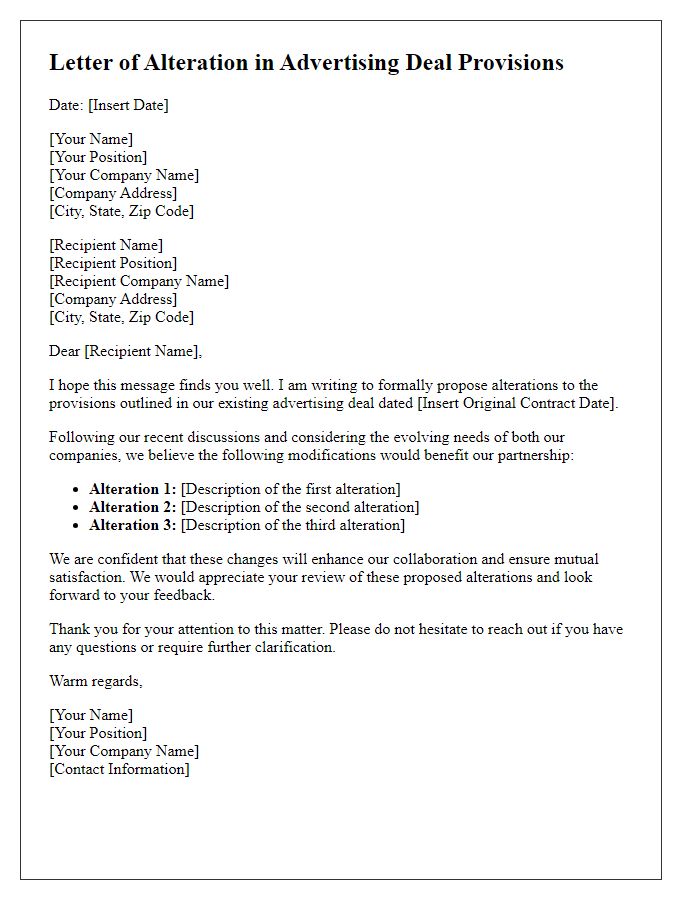
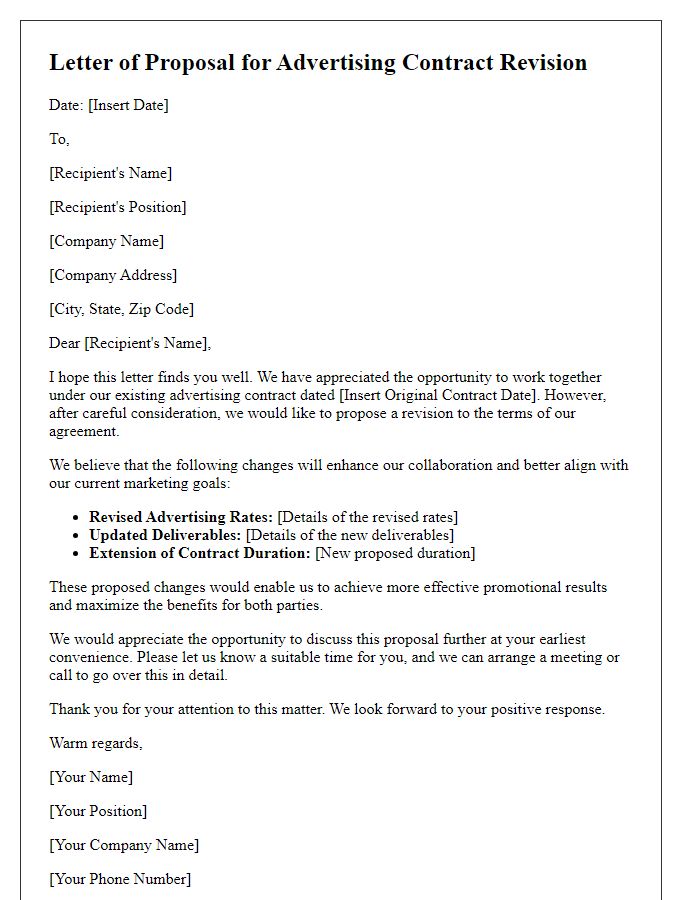
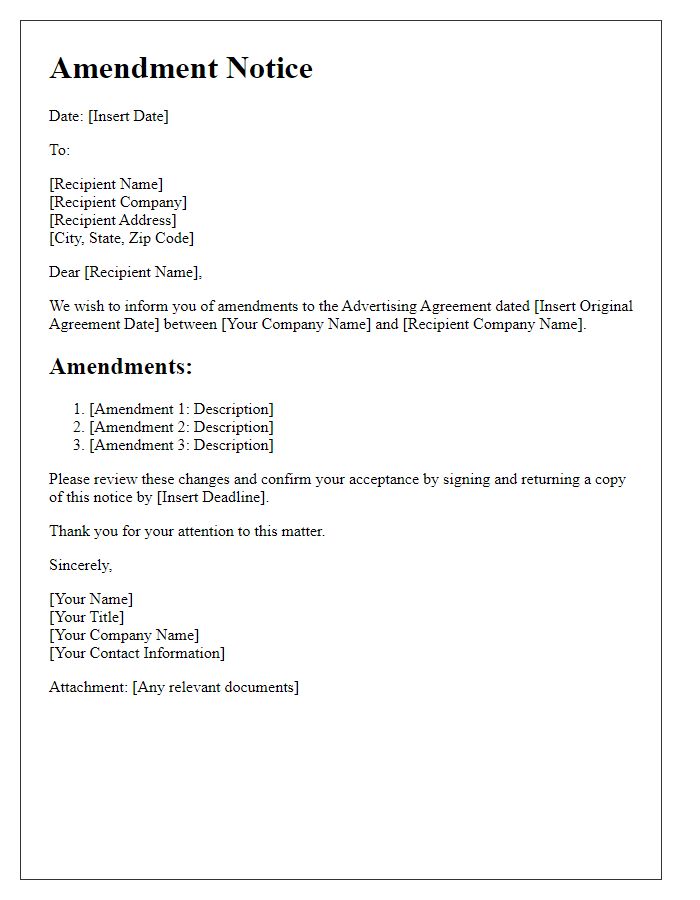
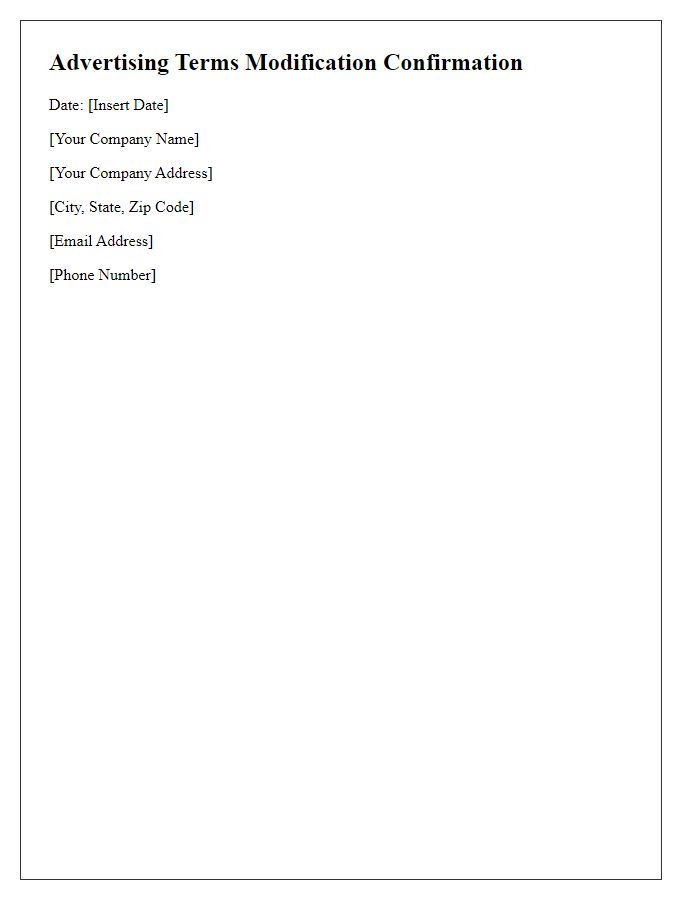


Comments